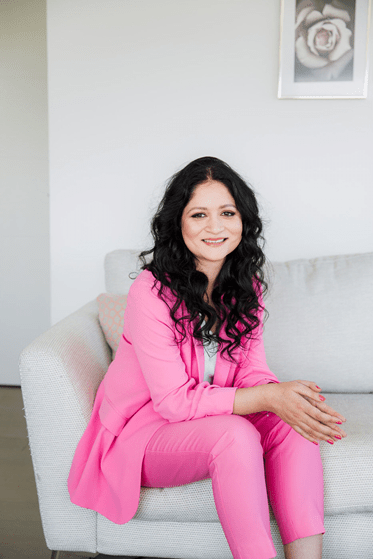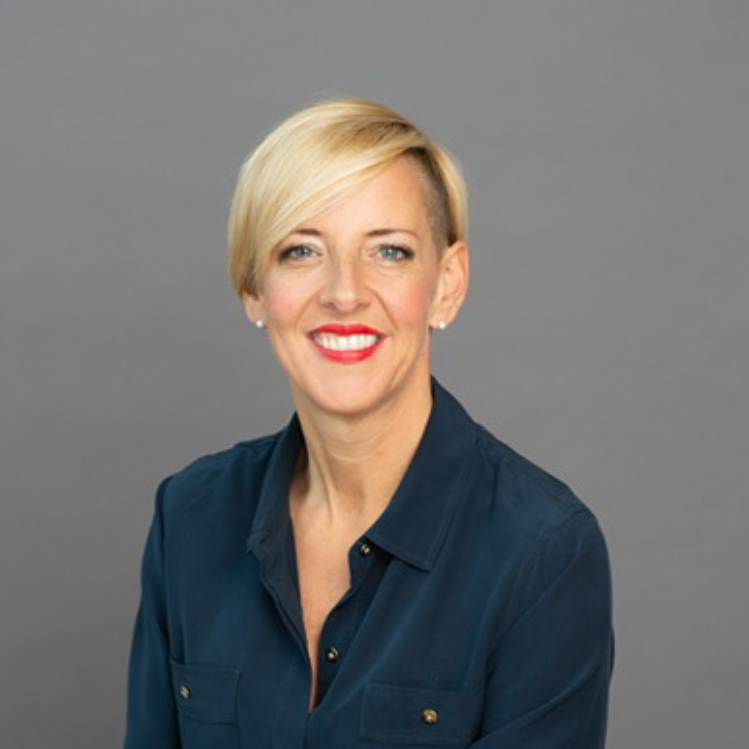
Sadaf Fatima: Turning My Pain into Power
In a world where the lines between professional success and personal well-being are often blurred, individuals who possess the insight and expertise to navigate these challenges become beacons of inspiration.
Meet Sadaf Fatima, a visionary coach whose remarkable journey from the world of finance to the realm of psychology and emotional healing has sparked a transformational approach to leadership and personal development.
In this article, we delve into Sadaf Fatima’s unique narrative, exploring how a passion for human behavior and a commitment to self-discovery have culminated in a coaching style that empowers leaders to cultivate emotional intelligence and empathic leadership.
Could you share a specific moment or turning point when you realised that your true passion lay in psychology, human behaviour, and self-development, prompting you to transition from the world of finance to coaching?
Absolutely, I have always had a passion for Psychology and Human Behaviour. As a child, I was fascinated by why people do what they do and what causes them to behave in certain ways. I was highly sensitive from a young age, which made me very curious about people’s emotions because it used to impact me when I would see someone upset or in pain.
In regard to Self-Development, I remember clearly that at the end of 2018, I was highly stressed at work, and I was also going through personal challenges. I was seeking answers because I was sick and tired of being sick and tired. That’s when I discovered a Mindset Coach who helped me get through those challenging times, and it was a transformative experience for me. That’s when I became passionate about self-development.
As I evolved in my own journey, working in high-pressure environments, going through challenges, figuring out how to handle difficulties with trial and error without any guidance, it gave me a lot of courage and understanding of how to handle emotions in challenging situations. I became passionate about teaching others how to overcome emotional challenges and started documenting those on YouTube. I received so much positive feedback from what I was sharing, I started coaching individuals, which I found to be fulfilling, and that’s when my coaching journey started.
Your journey of overcoming life challenges and adversity has shaped your resilience and emotional strength. How do you believe these personal experiences uniquely equip you to guide others in their own journeys towards emotional intelligence and resilience?
Pain can be a powerful tool for transformation. People either evolve through uplifting and supportive environments or going through challenges, which can give awareness and insights into becoming the best version of themselves. For me, the latter was true. I came to the UK at the age of 16, and I didn’t speak a word of English, with no emotional or financial support. It was very tough. I still managed to progress in my career exponentially and worked in the top tier Investment Banks in London. The professional success was not because I had any unfair advantage; actually, the odds were against me. It was because I understood how to remain calm in chaos, how to keep moving towards my vision regardless of the challenges.
I feel equipped to guide others because I have walked that path myself in my own life, and no formal education or certification can teach life experiences. I built self-awareness, learned to manage my own emotions in adversity, and demonstrated resilience time and time again. My intention has always been to provide guidance to others who are experiencing emotional struggle.
Your coaching approach involves exploring individuals’ belief systems and addressing root causes of issues. Can you share an example where you helped a client identify a blind spot that was significantly impacting their emotional well-being and effectiveness as a leader?
Yes, absolutely. I was working with a client who held a senior position in one of the universities in the UK. She was facing difficulties at work and had experienced complete burnout. She was struggling to cope and in need of help. The work environment was creating a lot of anxiety for her, and she felt guilty that she was unable to complete her work, even though she was working 80 hours per week. She was also unable to dedicate time to her family. We worked together to understand the issues, concerns, and what was causing her to burn out. We identified that she was seeking validation from her colleagues and her boss, which was causing her to overwork. She was stuck in a pattern of feeling guilty and overworking to please others, which led to burnout. That was a blind spot for her as she was not aware that this was what she was seeking subconsciously. Once we identified that, I worked on her limiting beliefs and helped her build healthy boundaries.
Fast forward to today, she has managed to set those boundaries at work, which led her to decide to leave that job. She has found a great position in a different university with flexible hours and a great pay package, which has worked out perfectly for her.

Having worked with senior leaders in the corporate world, you emphasise the importance of positive and uplifting leadership. Could you elaborate on a particular instance where you witnessed the transformation of a leader’s approach positively affecting their team and overall company culture?
Yes, I witnessed great leadership when I was working as an Analyst in one of the Investment banks several years ago. The senior leader I was reporting to was approachable, kind, friendly, and had so much empathy for his colleagues. He created an environment that made everyone feel comfortable and made it easy for us to work with each other.
One great quality he had, which I noticed about him, was that we would have 1:2:1 meetings in a cafe. This made it very comfortable to speak in a casual environment, and he was genuinely interested in feedback. He cared about our concerns and agreed on action plans, which he would follow through on. He did this with all of his team members. He demonstrated empathy, compassion, and commitment to his words, and that made a huge difference in the team’s morale and in building a positive environment.
In today’s fast-paced and demanding professional landscape, burnout and stress have become pervasive. How do you approach coaching high achievers to effectively manage their emotions in order to find freedom and fulfilment amidst such pressures?
Great question! Actually, it’s difficult to summarise because every individual is different, and what causes one person to burn out may be completely different from what causes somebody else to. It all depends on their work environment, work culture, how they feel emotionally, their past experiences, and what causes them stress. There is no one-size-fits-all process. So, when I work with individuals, I focus on who they are as a person and what is triggering and affecting them emotionally, which may be manifesting as stress or burnout. Most people are so busy with their professional careers that they stop noticing how they feel on a daily basis. Undealt feelings and emotions accumulated over the years can lead to stress and burnout.
Freedom and fulfilment come from what we are passionate about. If we are stuck in a job that we hate and are only in that job for financial security, then it’s impossible to find fulfilment or freedom in that specific job. There is this very common phrase, “Oh, it pays the bill,” and actually, it sounds quite sad. If we have to spend all our lives working in a place that brings no joy but pays the bills, then are we truly living?
You hold certifications in Theta Healing®, which is a unique approach to emotional healing. How do you integrate this technique into your coaching, and how have you seen it make a difference in your clients’ personal and professional lives?
It is indeed unique, especially in corporate culture. No one would mention a word ‘healing’ as it is considered ‘woo-woo’. How I understand this is that as human beings, we want to feel good emotionally and ultimately find happiness and fulfilment in everything that we do. Regardless of how logical one believes to be, we all desire love and happiness. Even quantum physics talks about energy fields in the human body and how powerful it can be for healing the human body.
Theta Healing is energy healing, and it has shown tremendous results over the years. I have seen great results in my clients’ lives because theta brain waves tap into the subconscious mind, which helps in clearing limiting beliefs and embeds powerful new beliefs.
The concept of creating a psychologically safe environment for employees is gaining recognition. Could you provide some practical advice or strategies for leaders who wish to foster such an environment within their teams?
I love this question, absolutely. It is so important that corporate leaders recognise and intentionally build a psychologically safe environment in their companies. It is now even more important than ever due to the rise in mental health issues that significantly impact individuals’ lives. We must become conscious of what culture we are fostering in our companies. Good employees are assets to the business, and if they are not treated well and not valued, then that’s a big loss for those companies. Creating a psychologically safe environment requires accountability from the leaders to lead by example, empower their team members, ensure that one does not get in trouble for speaking up, foster mutual respect, etc. All of this requires the leader to be emotionally safe themselves in order to create a psychologically safe environment.
Some of the steps leaders can take include training their senior managers to learn empathy and approach their teams with kindness and compassion. They should genuinely care about their team members’ well-being. Good listening skills are also essential, allowing the team to share their concerns and raise issues. Communication plays an important role, as well as addressing challenges with emotional maturity and having difficult conversations when needed.

The journey from a successful corporate career to entrepreneurship is often marked by uncertainty and challenges. How did you navigate this transition, and what lessons did you learn that could benefit others considering a similar leap?
Yes, indeed. Entrepreneurship has brought a lot of uncertainty. However, it has been a rewarding experience so far. It brings a lot of joy to me that I am doing something I am passionate about; therefore, I wouldn’t change it for the world!
In regard to the lessons I learned, I understand that success in a business is based 90% on mindset shift. Once one overcomes insecurities, fear, and doubts, the rest follows through. I also learned to embrace uncertainty and ride that wave with faith and fear. So, my advice for anyone looking to transition from a 9-5 to entrepreneurship is to take a leap of faith, believe in yourself, and work on your mindset for the success you aspire to achieve.
Empathy and compassion are key qualities you highlight for effective leadership. Could you share a story where your coaching helped a leader develop these qualities and ultimately lead their team to success in a more compassionate and empathetic manner?
I don’t specifically coach on empathy and compassion; my focus is on helping high achievers and leaders become emotionally strong and resilient. If a leader is in a good place emotionally, they will treat and lead their team better. We ourselves must be emotionally and psychologically safe for ourselves in order to create that environment outside of us.
I remember a particular client who I worked with. He was struggling with managing his team and work deadlines. When we worked together, we explored his belief systems and went through self-awareness exercises. We realised that there were a lot of inner conflicts and self-doubt that were causing him to be completely emotionally drained. This was causing conflict with his team, and he was struggling to manage them. We worked together for a number of months, and once he started feeling good about himself and became aware of his blind spots and went through healing sessions, it helped him to be kind to himself and others. He also learned to be more empathetic toward his team.
Looking ahead, what are your aspirations for the future of your coaching practice? How do you envision further impacting the lives of leaders and high achievers through your unique blend of psychology, emotional healing, and coaching techniques?
I aspire to speak on stages to bring awareness on how important it is to have emotional strength and resilience. I would like to share my own story with others, and I am also excited to write a book. I would like to expand my business internationally and look forward to working with great thought leaders and individuals who truly want to make a difference in society. I would like to see more empathic leadership where leaders are authentic, transparent, and have a strong emotional quotient to build conscious companies and create psychologically safe environments for themselves and their teams. My aim is to help leaders feel great emotionally, so that they can create the impact they desire and find fulfilment.

Home – Sadaf Fatima’s Official Website





